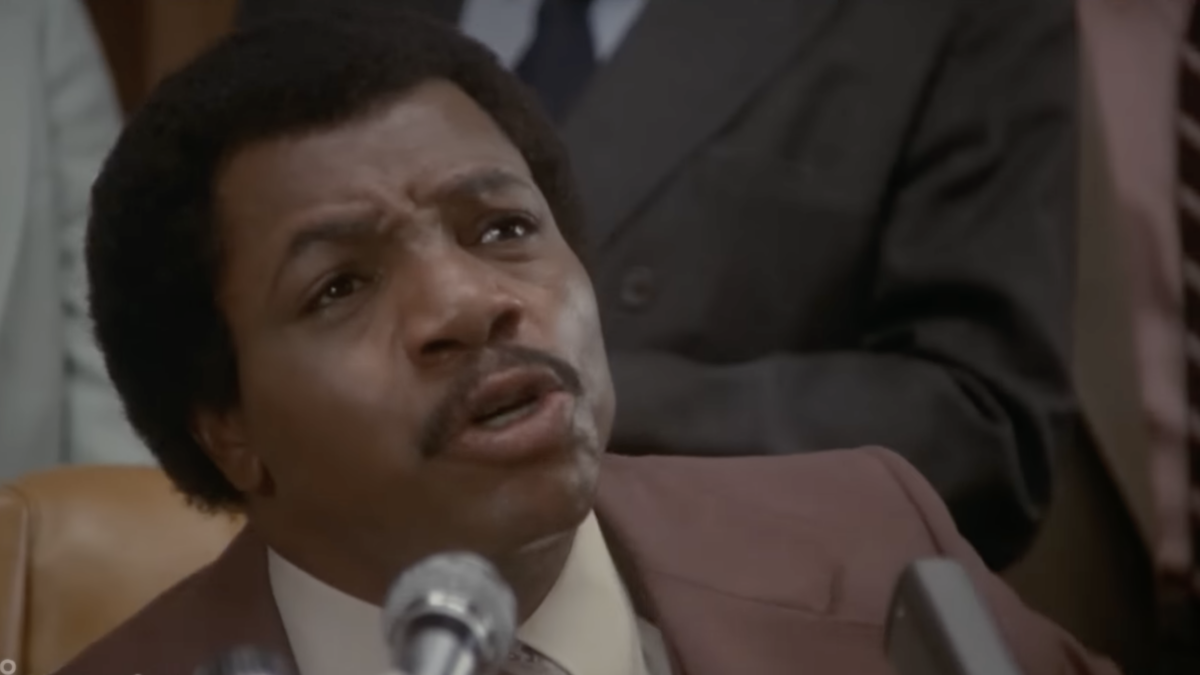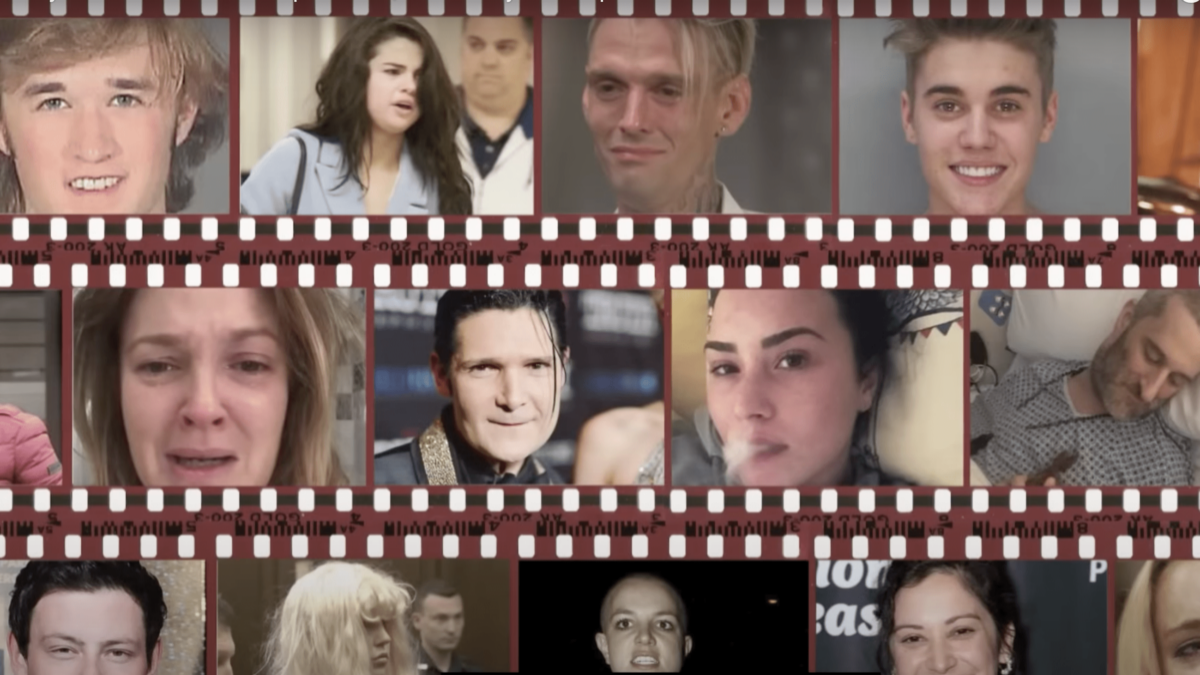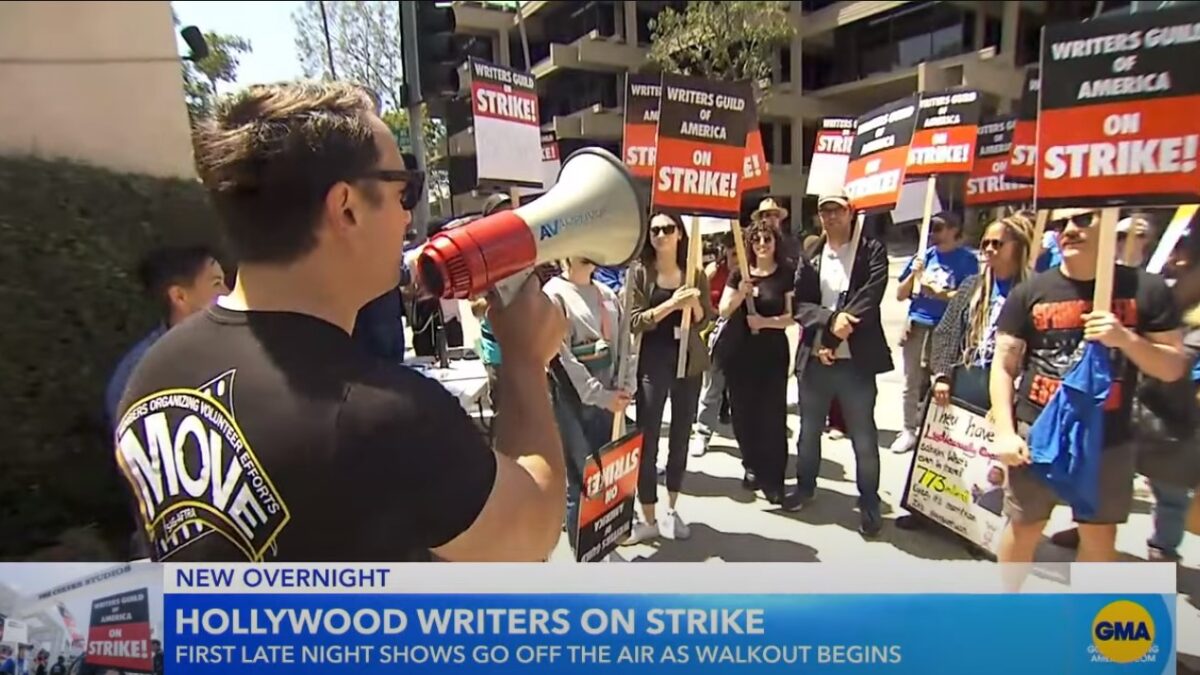
There are two excellent stories at the center of “Hollywood,” Ryan Murphy’s alt-history saga of old Hollywood. An intrepid group of friends attempt to make a big studio romance starring a talented black actress in 1947. An aspiring actor must negotiate his desire for fame with his morals, in the backdrop of a sexually exploitive agent and the omnipresent risk of his homosexuality becoming discovered.
Both of these stories are technically covered in the show, but they are not nearly done the justice they deserve. That is because those narratives would be character-focused, exploring the struggles of the protagonists with nuance and drama.
“Hollywood” isn’t interested in real, nor does it seek nuance. Instead, the series is focused on a self-congratulatory look on how the movies are the only real avenue of social change, and that racism and homophobia in the 1940s could be cured by making movies.
The series tells the story of three young men in post-war Los Angeles as they try to break into the movie business, eventually attempting to create the first studio film with a black leading lady. Raymond (Darren Criss) is an up-and-coming director whose goal is to revitalize the career of his favorite actress, Anna May Wong (Michelle Krusiec), who struggled to find roles due to her Chinese heritage.
Ray is dating a black actress, Camille (Laura Harrier) during a time interracial marriages were still illegal. Archie (Jeremy Pope) is a gay, black screenwriter and sometimes gigolo who finds himself balancing career ambitions and a developing relationship with actor Rock Hudson (Jake Picking).
Jack (David Corenswet) is a handsome World War II veteran who wants to be a movie star, but finds himself working as an escort. The only reasons we’re given to support him and his narcissistic dreams are his incredibly sympathetic pregnant wife (Maude Apatow), his charm and good looks, and the fact that he’s the de facto protagonist.
Squandered Potential
A number of incredibly effective scenes demonstrate the squandered potential of the show, particularly those focusing on transactional sex, both in prostitution and quid pro quo.
A scene in the third episode goes from tense to tragic to heartwarming all within five minutes, navigating the tonal shifts like a much smarter show. Rock is pushed by his slimy and sexually harassing agent Henry Wilson (Jim Parsons) to sleep with a producer, Dick (Joe Mantello). The moment is quiet, emotionally fraught, and deeply personal, one of the only major scenes to just be about the characters and not the impact to society at large. As such, the hopeful ending may be the only one that feels earned.
The show’s ability to play in the morally grey was highlighted during a shocking and clever scene where Camille asks her boyfriend for a role in his movie during sex. The manipulation and emotional complications are handled deftly, as the episode showed audiences exactly what moments led Camille to that decision without excusing the ethical implications and potential harm to her relationship. However, all of the complexity so expertly displayed in the scene is completely undercut when, just moments later, Camille apologizes to Raymond for the manipulation, and he agrees to get her a screen-test.
Message Over Plot and Character
Rather than allowing Camille to be a flawed, layered character, any poor decisions are cleared up and apologized for within minutes. It would have been much more interesting to witness the long-term ramifications of such blatant sexual manipulation on her self-image and on the relationship. Yet Camille must remain a symbol of the oppressed black actress, and any weakness or shortcoming undermines the purpose of her character.
This problem with Camille stems from a broader issue with the series: it doesn’t allow characters to be morally ambiguous. Everyone is either a moral hero crusading for justice and equality or a cartoonish villain exploiting the systems in place for his own ends. Any protagonist who has doubts or makes a morally questionable decision must come to his or her senses and discover the greater purpose by the next scene, leaving the characters feel more like stand-ins for ideas than people.
At the end of the day, “Hollywood” doesn’t care about telling a compelling story about interesting people, but is intent on demonstrating the importance of representation in media. The self-importance is as astonishing as it is tone-deaf.
Wasted Talent
That being said, the cast does their best with the one-note characters, attempting to flesh out some humanity in the thinly drawn personas. It’s a shame the performances aren’t given to more worthy material.
Jim Parsons, best known for his work on “The Big Bang Theory,” gives his all to the cartoonishly villainous Henry Wilson, based on the historical predatory agent. His attempts to break from the Sheldon Cooper typecast are effective, though he seems to be leaning a little heavily into the evil of his character. His upcoming role in the Ryan Murphy adaptation of “The Boys in the Band,” set to hit Netflix sometime this year, will far better demonstrate Parsons’s range and talents, as he brings his outstanding turn as the play’s lead from the 2018 Broadway production to the screen.
Patti LuPone’s frustrated studio head’s wife and Joe Mantello’s self-loathing producer come close to some depth, but any character development is quickly washed away in favor of maintaining a black and white morality, which leaves no room for doubtful or tempted characters. This is especially frustrating when LuPone and Mantello play their more compromised scenes so well, it would have been a treat to see what they would have done with more interesting versions of their characters.
The only character to operate in the moral grey is Jack. However, this attempted antihero lacks the one characteristic required for the type to work: any reason whatsoever to like him. Jack is selfish, narcissistic, arrogant, incredibly vapid, and cruel to his kind and likable wife. The only reason Jack is remotely likable rests on David Corenswet’s charm and beauty. Corenswet is very effective as the difficult-to-like protagonist, balancing out an overwhelming slate of bad character traits to somehow make Jack a functioning lead.
The chemistry between the two main couples is spectacular, and helps give the audience something in which to invest. Camille and Raymond have a deep connection, and an exciting chemistry bolstered by Laura Harrier and Darren Criss’s excellent performances. Their scenes together hint at a longstanding intimacy with an exciting spark.
Archie and Rock charmingly portray a developing couple in the thrill of new love with genuine chemistry and believability, and Jeremy Pope and Jake Picking are both strong in their respective roles. However, Picking’s Rock Hudson should have been given a fictional name. The series presents the charismatic and gifted leading man as a naive, talentless actor who is as awkward in front of the camera as he is in real life.
Anyone who has seen Hudson’s films, from “Pillow Talk” to his Oscar nominated turn in “Giant,” knows he can really act. He also has a magnetic onscreen presence, which made him such an effective heartthrob. Picking plays his character beautifully, but that character simply isn’t Hudson.
What Could Have Been
A lot of talent went in to the making of “Hollywood.” It’s beautifully shot, well acted, and a handful of scenes demonstrate that the writers and directors can produce gripping and moving products. However, the show doesn’t work, because it isn’t really a show at all. It’s a self-congratulatory sermon celebrating Hollywood’s woke-ness.
It can be more frustrating to watch an okay show with immense potential than a hopelessly awful one. Every frame of Hollywood is dripping with a heart-wrenching “what could have been.” But rather than a nuanced look at race, sex, harassment, movies, and dreams in 1940s, the show opts for a surface-level approach as vapid as the Hollywood sign central to its title sequence.









